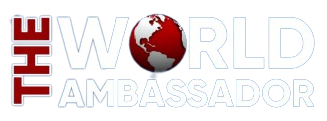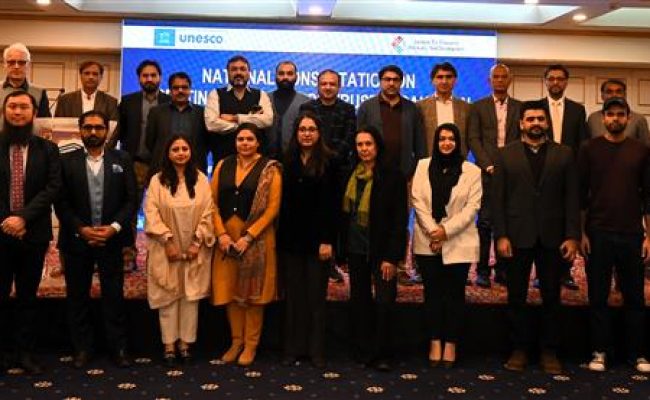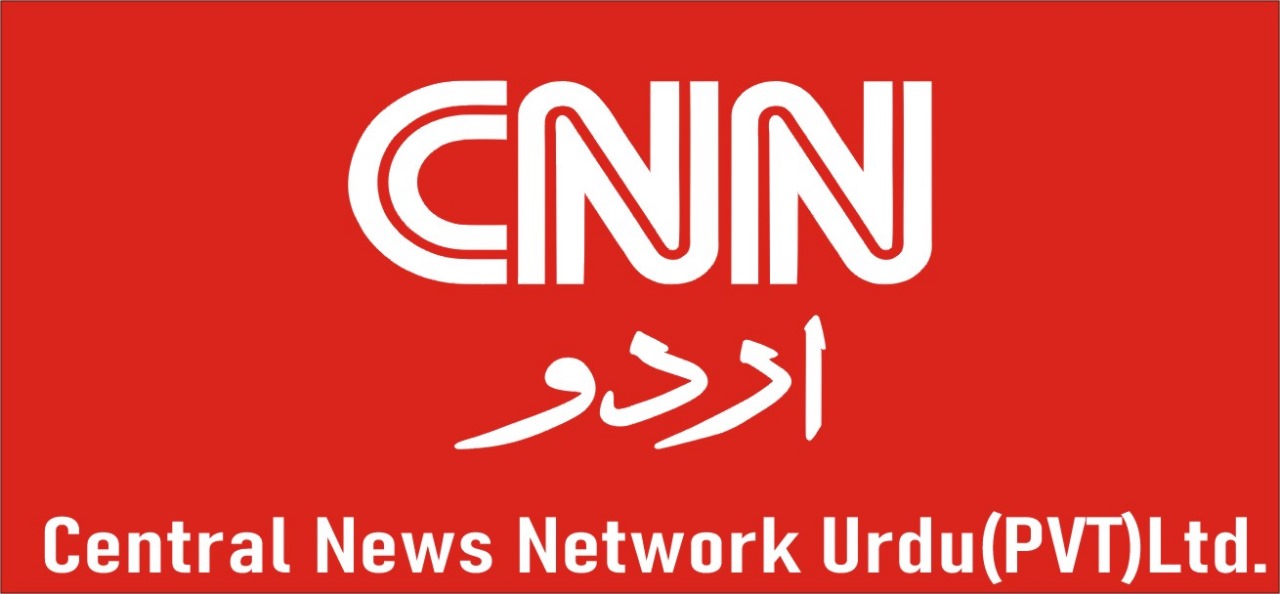By The World Ambassador
TWA
______
UNESCO and Institute for Research Advocacy and Development (IRADA) organised today a multi-stakeholder national consultation to formalise a constructive dialogue on UNESCO Guidelines to create a conducive environment for public discourse on freedom of expression, access to online information and governance reforms in digital media platforms of Pakistan.
The national consultation was inaugurated by Antony Kar Hung Tam, Officer-in-Charge, UNESCO Office in Pakistan, he mentioned, “There is an urgent need to tackle disinformation and harmful content online while safeguarding fundamental rights, particularly freedom of expression and access to information. Achieving this balance requires a shared responsibility and collaborative efforts from all stakeholders”.

During the inaugural session, Muhammad Shahzad, Director General, Centre of Digital Communication, Ministry of Information and Broadcasting, Pakistan, that balancing hate speech and disinformation with legitimate discourse should be an utmost priority for stakeholders. While Ahmed Shamim Pirzada, Director General of the Web Analysis Division at Pakistan Telecommunication Authority (PTA) in his remarks stressed concerns around digital governance are a global issue and not just limited to Pakistan, which is why they must work together to find solutions.
The UNESCO Guidelines for Governance of Digital Platforms emphasise the need for an enabling environment to safeguard freedom of expression, access to information, and other human rights while ensuring a safe and open digital space. They outline the roles of various stakeholders: states must respect and protect human rights, digital platforms should uphold human rights, and intergovernmental organisations, civil society, media, academia, and the technical community also play crucial roles. They propose a multistakeholder, human rights-based approach to platform governance, incorporating self-regulatory, co-regulatory, and statutory mechanisms. They also highlight media and information literacy and respect for cultural diversity as shared responsibilities, and recommend that platforms have processes for content moderation, risk assessment, and accountability.
Moreover, UNESCO in its most recent Executive Board Session held in October 2024, adopted Pakistan-led resolution on “Countering Disinformation for the Promotion and Protection of Freedom of Expression and Access to Information.” The UNESCO Decisions emphasises the central role of the UNESCO among United Nations agencies in the promotion and protection of freedom of expression and access to information among States, through digital and media literacy education, intercultural understanding, fact checking and evidence-based information and transparent and accountable technological solutions. Stresses that countering disinformation requires multidimensional and multistakeholder responses consisting with international human rights law and the proactive management of international organizations, States, media and social media, business enterprises and other relevant stakeholders.
The national consultation was preceded by four provincial consultations that helped collate recommendations from various stakeholders for the governance of digital media platforms in Pakistan with respect to internet freedom, human rights, access to information that were further discussed and refined in the national level consultation.
Participants were divided into three categories; academia, civil society and digital media and journalists, after which each group presented recommendations for a national level regulatory framework that aligns with the UNESCO Guidelines. These recommendations included increased cooperation between stakeholders, promotion of enhancing media and information literacy, call for better content moderation and curation by digital media platforms. The presentations were followed by a panel discussion that explored these recommendations in detail.
The national consultation aimed at forging a multistakeholder advocacy forum to advocate for the implementation of the recommendations collected through the provincial consultations, along with developing an evidence-based approach to carve out a path for global dialogues complemented by regional-specific concerns on the governance of digital platforms.
Through these multi-stakeholders’ consultations, UNESCO and IRADA have also collected stakeholders-wise recommendations and developed a roadmap for effective implementation of the Guidelines for the Governance of Digital Platforms, enabling the environment for exercise of fundamental freedoms and digital rights of citizens.


